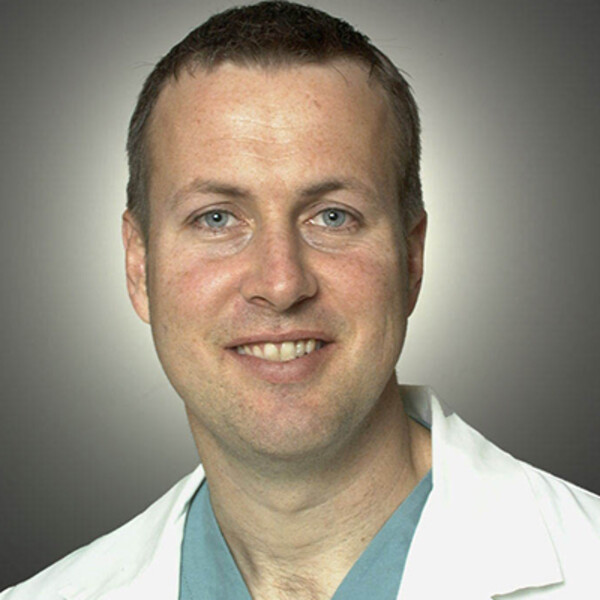Main Second Level Navigation
Colin McKerlie
DVM, DVSc, MRCVS

Professional Memberships
- The Royal College of Veterinary Surgeons
Dr McKerlie is a veterinary pathologist and phenogenomic scientist.
He came to SickKids in June 2002 from the Research Institute at Sunnybrook Health Sciences Centre where he was Director of the Department of Comparative Research.
He is currently a Senior Associate Scientist in the Physiology & Experimental Medicine program and a Professor in the Department of Laboratory Medicine & Pathobiology at the University of Toronto.
He received his Doctor of Veterinary Medicine (DVM) from the Ontario Veterinary College at the University of Guelph in 1991, and his Doctorate of Veterinary Science (DVSc) in comparative pathology from the University of Guelph in 1997.
Dr McKerlie is a Member of the Royal College of Veterinary Surgeons.
Dr McKerlie is also the Director of Research Partnerships at The Centre for Phenogenomics, a research-enabling centre that is among the largest genetics centres in the world dedicated to the development and study of mouse models of human disease.
He is also a staff scientist at the Lunenfeld-Tanenbaum Research Institute, one of the world’s leading academic centres in biomedical research, particularly in functional genomics and mutant mouse and embryonic stem cell technologies to generate models of human disease.
Research Synopsis
I’m focused on discovering and understanding the function of genes and abnormalities in genes (“mutations”) that cause disease in children and adults.
My pathology lab studies tissue changes associated with mutations.
My molecular biology lab focuses on R&D in design and production of mutant mouse models, particularly Cas9 RNA-guided nucleases, germ cell cryopreservation, and in vitro fertilization.
My research group is working on two project areas that are all linked by a common goal to discover and understand the function of genes that cause disease in children and adults.
Clinical and pathology phenogenomics for mouse models of human disease
Mutations, which cause damage to genes, are important causes of disease.
The high degree of similarity between the genes of humans and mice, the similar biology of these two species, and the ease with which the mouse genome can be experimentally manipulated, make the mouse an ideal model organism to study the genetics and biology of human disease.
My lab at SickKids focuses on the development and application of clinical and morphology-based and slide-based techniques to characterize the function of a variety of novel genes and genetic pathways. We are applying these tools in project-specific and large-scale international mutagenesis programs and in our characterization and discovery efforts using mouse models of human disease.
Mouse model production and archiving
Activity in my molecular biology and biorepository lab is focused on research and development in the design and production of mutant mouse models, and germ cell cryopreservation for archiving and reanimation using in vitro fertilization.
The goal of these efforts is to:
- research, develop, and validate more efficient and reproducible techniques for production of predictive models (Transgenics, ES-cell chimeras, and Cas9 RNA-guided nuclease for mice and rats (aka CRISPR/Cas9 gene editing); and
- optimize germ cell cryopreservation and mouse model distribution.
We use these techniques to support our national repository and resource for the physical archive of cryopreserved sperm, embryos, and tissue DNA generated by Canada’s mouse genome effort, along with the fixed and processed tissue archive required to complement the frozen resource.
We also provide expertise and services as a CFI-designated National Research Facility and Genome Canada-designated Genomics Innovation Network node to provide bespoke mouse models to large-scale mouse phenogenomics projects and Canadian and international researchers. See Model Production Services at The Centre for Phenogenomics.
Recent Publications
Dickinson ME, Flenniken AM, Ji X, Teboul L, Wong MD, White JK, Meehan TF, McKerlie C, Murray SA. High-throughput discovery of novel developmental phenotypes. Nature 2016 published on-line 14 September 2016 doi:10.1038/nature19356.
Lloyd KCK, McKerlie C, Seong JK, Neff F. Comment on “One health, one literature: Weaving together veterinary and medical research”. Letter to Science Transl Med 7, 2015 Dec 9; 7(317): 317le3. doi: 10.1126/scitranslmed.aad4954.
Hrabé de Angelis M, et al., McKerlie C, et al., Brown SDM. Analysis of gene function through broad-based phenotypic screens across a consortium of mouse clinics. Nature Genetics 47 (9): 969-978. September 2015.
Adissu HA, Medhanie GA, Morikawa L, White JK, Newbigging S, McKerlie C. Right ventricular epicardial fibrosis in mice with sternal segment dislocation. Veterinary Pathology 52 (5): 967-976. September 2015.
Lloyd KCK, et al., McKerlie C, et al., Moore M. Precision medicine: Look to the mice. Letter to Science. Science 349 (6246), 390. 24 July 2015.
McKerlie C, Newbigging S, Wood GA. (April 2015). Mouse developmental pathology assessments in high-throughput phenogenomics facilities. In B. Bolon (Ed.), Pathology of the Developing Mouse: A Systematic Approach (1st edition) (377-404). Boca Raton, FL: Taylor & Francis Group, CRC Press. (ISBN: 978-1-4200-70088)
Brayton C, McKerlie C, Brown SDM (June 2014). Phenotype analysis. In C.A. Pinkert (Ed.), Transgenic Animal Technology (3rd edition) (431-488). Amsterdam, Netherlands: Elsevier B.V. (ISBN: 978-0-1241-0490-7)
Adissu HA, Estabel J, Sunter D, Tuck E, Hooks Y, Carragher DM, Clarke K, Karp NA, Sanger Mouse Genetics Project, Newbigging S, Jones N, Morikawa L, White JK, McKerlie C. Histopathology reveals correlative and unique phenotypes in a high throughput mouse phenotyping screen. Dis Model Mech 7 (5): 515-524. May 2014.
Brown S, et al., McKerlie C, et al., Green E. Mouse already being charted gene by gene. Correspondence to Nature. Nature 508 (7496), 319. 17 April 2014.
Bradley A, et al., McKerlie C, et al., Wurst W. The mammalian gene function resource: the international knockout mouse consortium. Mamm Genome 23 (9-10): 580-586. October 2012.
Donahue LR, et al., McKerlie C, Nakagata N, et al., Wurst W, Hörlein A, Davisson MT. Centralized mouse repositories. Mamm Genome 23 (9-10): 559-571. October 2012.
Schofield PN, Sundberg JP, Sundberg BA, McKerlie C, Gkoutos GV. The mouse pathology ontology, MPATH; structure and applications. IMISE-ReportsNr. 1/2012: 39-45. September 2012.
Appointments
Director of Research Partnerships at The Centre for Phenogenomics
